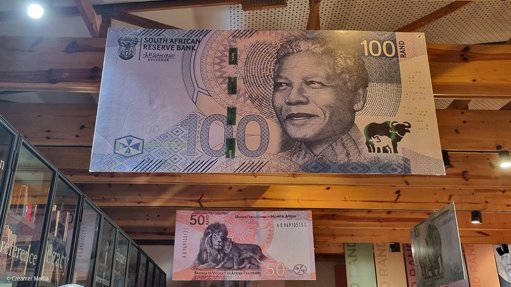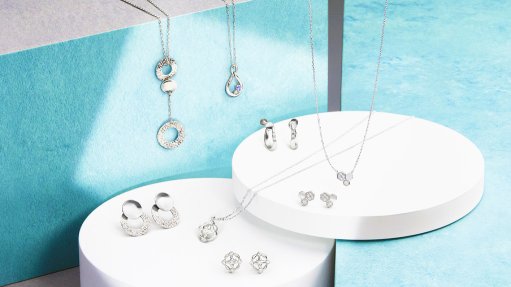Massive benefits of the virus
Some time back – more than ten years – the economy was swimming along. I had five staff and one of them stopped me in the office and asked if she could have a word with me. No problem. She said that she was not ungrateful, but . . .
I knew what was coming after “but”. And it did. She asked if I knew that her friend, who also had a degree in engineering, was earning R60 000 a month.
I said, oddly, no I didn’t know that. Well, she said. I said, look, the way it runs here is that we do work and send out invoices. We get paid and most of that money is spent on staff salaries. Some of it is my salary. I told her I pay staff as much as I possibly can afford to pay them. If it is too little for your needs, I told her, reduce your needs. And then she said something that stayed with me for many years: “How do you,” she asked, “expect me to have a house and kids on what you pay me?” At the time, she was taking home R20 000 (that was ten years ago). I think she thought we were in a position of privilege, being allowed to employ her and had an obligation to support her and accommodate her and her future offspring. Anyway, she left soon thereafter.
I have found this attitude to be fairly prevalent among Millennials – that they are so smart and useful, you should be tripping over yourself to employ them and, when you finally do get them into your business, you must pay them very well, because their friends in information technology or working for the power utility or the large insurers are paid very well.
It is all rubbish. The whole of the Western world has, until now, been full of Millennial employees whose major achievements are knowing how to use Twitter or Instagram or whatever, and they work for organisations whose stated business plan is to foster something like Developmental Works Strategies or Business Process Management, where these offerings are vague and only have some basis in financial share manipulation.
The virus changes all this. There is no way any worthwhile business is going to spend money on services they do not really need or staff who need not be there. When a company spends 21 days in the desert, not everybody gets back alive.
There will be a great winnowing out of what I term ‘artificial companies’, whose existence is based on providing a service that actually is not relevant and not needed. Yay for this.
Another victim that will fall to the virus will be event management companies. Everybody loves a good party, but the money spent on events has, in recent times, become ridiculous: weddings, for example: $75 000 for flowers, $100 000 for security, $70 000 to fly delicacies from Europe – all of which when you could feed a family in Africa for $5 a day and still have money left over for chewing gum. As the event business dries up, the institutional experience on how to run events will dissipate, and with it the huge wastage that these things cause.
Other unexpected virus consequences will be increased tension in families as a result of ‘cabin fever’. This is, by definition, “lassitude, irritability and similar symptoms resulting from long confinement or isolation indoors during the winter”. Put ‘winter’ to one side and there you have it. Twenty-one days in close proximity – a lot of couples will end up close to divorce, or worse.
One thing will be a big fail for the virus: stopping people from buying alcohol. This regulation has as much chance of succeeding as when Icarus fixed wings to his shoulders with wax and flew too close to the sun. If you think there was a lot of illegal drinking before the lockdown, hold on to your hat. So, all interesting consequences. We step boldly into the unknown.
Article Enquiry
Email Article
Save Article
Feedback
To advertise email advertising@creamermedia.co.za or click here
Comments
Press Office
Announcements
What's On
Subscribe to improve your user experience...
Option 1 (equivalent of R125 a month):
Receive a weekly copy of Creamer Media's Engineering News & Mining Weekly magazine
(print copy for those in South Africa and e-magazine for those outside of South Africa)
Receive daily email newsletters
Access to full search results
Access archive of magazine back copies
Access to Projects in Progress
Access to ONE Research Report of your choice in PDF format
Option 2 (equivalent of R375 a month):
All benefits from Option 1
PLUS
Access to Creamer Media's Research Channel Africa for ALL Research Reports, in PDF format, on various industrial and mining sectors
including Electricity; Water; Energy Transition; Hydrogen; Roads, Rail and Ports; Coal; Gold; Platinum; Battery Metals; etc.
Already a subscriber?
Forgotten your password?
Receive weekly copy of Creamer Media's Engineering News & Mining Weekly magazine (print copy for those in South Africa and e-magazine for those outside of South Africa)
➕
Recieve daily email newsletters
➕
Access to full search results
➕
Access archive of magazine back copies
➕
Access to Projects in Progress
➕
Access to ONE Research Report of your choice in PDF format
RESEARCH CHANNEL AFRICA
R4500 (equivalent of R375 a month)
SUBSCRIBEAll benefits from Option 1
➕
Access to Creamer Media's Research Channel Africa for ALL Research Reports on various industrial and mining sectors, in PDF format, including on:
Electricity
➕
Water
➕
Energy Transition
➕
Hydrogen
➕
Roads, Rail and Ports
➕
Coal
➕
Gold
➕
Platinum
➕
Battery Metals
➕
etc.
Receive all benefits from Option 1 or Option 2 delivered to numerous people at your company
➕
Multiple User names and Passwords for simultaneous log-ins
➕
Intranet integration access to all in your organisation


















